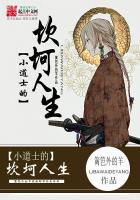Even at that moment, all uncertain as I was, I perceived, in the paper whereon I was writing, a little insect that ceased not to carol like very chanticleer, until, taking a magnifying glass, Iassiduously observed him. He is about the bigness of a mite, and carries a grey crest, and the head low, bowed over the bosom; as to his crowing noise, it comes of his clashing his wings against each other with an incessant din." Thus far Mentzelius, and more to the same purpose, as may be read in the "Memoirs of famous Foreign Academies" (Dijon, 1755-59, 13 vol. in quarto). But, in our times, the learned Mr. Blades having a desire to exhibit book-worms in the body to the Caxtonians at the Caxton celebration, could find few men that had so much as seen a book-worm, much less heard him utter his native wood-notes wild. Yet, in his "Enemies of Books," he describes some rare encounters with the worm. Dirty books, damp books, dusty books, and books that the owner never opens, are most exposed to the enemy; and "the worm, the proud worm, is the conqueror still," as a didactic poet sings, in an ode on man's mortality. As we have quoted Mentzelius, it may not be amiss to give D'Alembert's theory of book-worms: "I believe," he says, "that a little beetle lays her eggs in books in August, thence is hatched a mite, like the cheese-mite, which devours books merely because it is compelled to gnaw its way out into the air." Book-worms like the paste which binders employ, but D'Alembert adds that they cannot endure absinthe. Mr. Blades finds too that they disdain to devour our *****erate modern paper.
"Say, shall I sing of rats," asked Grainger, when reading to Johnson his epic, the "Sugar-cane." "No," said the Doctor; and though rats are the foe of the bibliophile, at least as much as of the sugar-planter, we do not propose to sing of them. M. Fertiault has done so already in "Les Sonnets d'un Bibliophile," where the reader must be pleased with the beautiful etchings of rats devouring an illuminated MS., and battening on morocco bindings stamped with the bees of De Thou. It is unnecessary and it would be undignified, to give hints on rat-catching, but the ******* must not forget that these animals have a passion for bindings.
The book-collector must avoid gas, which deposits a filthy coat of oil that catches dust. Mr. Blades found that three jets of gas in a small room soon reduced the leather on his book-shelves to a powder of the consistency of snuff, and made the backs of books come away in his hand. Shaded lamps give the best and most suitable light for the library. As to the risks which books run at the hands of the owner himself, we surely need not repeat the advice of Richard de Bury. Living in an age when tubs (if not unknown as M. Michelet declares) were far from being common, the old collector inveighed against the dirty hands of readers, and against their habit of marking their place in a book with filthy straws, or setting down a beer pot in the middle of the volume to keep the pages open. But the *******, however refined himself, must beware of men who love not fly leaves neither regard margins, but write notes over the latter, and light their pipes with the former. After seeing the wreck of a book which these persons have been busy with, one appreciates the fine Greek hyperbole. The Greeks did not speak of "thumbing" but of "walking up and down" on a volume ([Greek text]).
To such fellows it matters not that they make a book dirty and greasy, cutting the pages with their fingers, and holding the boards over the fire till they crack. All these slatternly practices, though they destroy a book as surely as the flames of Caesar's soldiers at Alexandria, seem fine manly acts to the grobians who use them. What says Jules Janin, who has written "Contre l'indifference des Philistins," "il faut a l'homme sage et studieux un tome honorable et digne de sa louange." The *******, and all decent men, will beware of lending books to such rude workers; and this consideration brings us to these great foes of books, the borrowers and robbers. The lending of books, and of other property, has been defended by some great authorities; thus Panurge himself says, "it would prove much more easy in nature to have fish entertained in the air, and bullocks fed in the bottom of the ocean, than to support or tolerate a rascally rabble of people that will not lend."Pirckheimer, too, for whom Albert Durer designed a book-plate, was a lender, and took for his device Sibi et Amicis; and Jo. Grolierii et amicorum, was the motto of the renowned Grolier, whom mistaken writers vainly but frequently report to have been a bookbinder. But as Mr. Leicester Warren says, in his "Study of Book-plates"(Pearson, 1880), "Christian Charles de Savigny leaves all the rest behind, exclaiming non mihi sed aliis." But the majority of amateurs have chosen wiser, though more churlish devices, as "the ungodly borroweth and payeth not again," or "go to them that sell, and buy for yourselves." David Garrick engraved on his book-plate, beside a bust of Shakspeare, these words of Menage, "La premiere chose qu'on doit faire, quand on a emprunte' un livre, c'est de le lire, afin de pouvoir le rendre plutot." But the borrower is so minded that the last thing he thinks of is to read a borrowed book, and the penultimate subject of his reflections is its restoration.
Menage (Menagiana, Paris, 1729, vol. i. p. 265), mentions, as if it were a notable misdeed, this of Angelo Politian's, "he borrowed a 'Lucretius' from Pomponius Laetus, and kept it for four years."Four years! in the sight of the borrower it is but a moment. Menage reports that a friend kept his "Pausanias" for three years, whereas four months was long enough.
"At quarto saltem mense redire decet."















